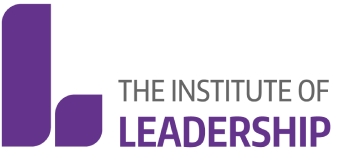Essential Writing Skills for the Public Sector
|
Date: 26th March 2026 |
Introduction
The emphasis on the written word for those working in, or with, the public sector requires you to write for a diverse range of people including both internal and external stakeholders. You will also need to understand how to get the best from social media and the benefits/limitations of AI. The objective of this course is to understand and practise all the key skills for successful written communication in the public sector and beyond.
Learning Outcomes
- Understand how to achieve what you want from your writing
- Learn and practise how to structure a proposal or argument most effectively
- Understand the importance of clarity, plain English, how to avoid jargon and how to be helpful in your writing, and apply it in practice sessions
- Understand how to make an impact with your writing (including presenting data)
By the end of the course, the delegates will be able to:

The Institute of Leadership has approved this training course. The Institute combines years of research, knowledge and innovation to champion the leadership agenda for alL and since 1947 they have carried out extensive research into the knowledge, skills, attitudes, behaviours and values of great leadership. Based on The Institute's core leadership values, this course meets the standard that enables learners who have completed to access the following benefits:
- Membership of The Institute of Leadership will be in receipt of an ICPS/The Institute joint Certificate of achievement for the course
- Access to a raft of resources to help you with your continuing professional development, including an award-winning library of e-learning content
- A community of over 70,000 members worldwide enabling you to collaborate and grow your knowledge and skills
- Receipt of weekly news updates, podcasts and cutting-edge research and a monthly published journal and invitations to topical webinars
- Authorisation to use approved letters AMInstL (Associate Member of The Institute of Leadership) after your name for business correspondence
Programme
| 9:15 |
Registration and Refreshments
|
| 9:45 |
Trainer�s Welcome and Introduction
|
| 10:00 |
Session One
Discover useful templates and frameworks for written documents
Exercise
Spot and correct common spelling, grammar and punctuation errors
|
| 11:15 |
Morning Coffee
|
| 11:30 |
Session Two
Learn the skills to develop a logical approach to your proposition or argument
Learn how to anticipate and counter objections and other points of view Exercise: Drafting Letters for Ministers
Practise the key components of an effective written document which requires action by its reader
|
| 12:45 |
Lunch
|
| 13:45 |
Session Three
Understand the importance of using plain English in your written work.
Understand the importance of language, style and tone Understand the importance of sounding helpful, human and empathetic, and how to bear in mind political sensitivities Exercise: Writing for an External Audience
Practise how to communicate essential information in a concise and clear manner, and how to create impact in your writing
|
| 15:00 |
Afternoon Tea
|
| 15:15 |
Session Four
Learn how to read thoroughly and accurately
Learn how to summarise wide ranging discussions and documents, keeping to the relevant issues Exercise: Drafting Minutes of Meetings and Phone
Calls
Practise how to write an executive summary
|
| 16:15 |
Final Questions, Feedback and Discussion
|
| 16:45 |
Close
|
Please note that the programme is subject to change without notice

